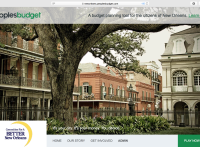MTender system is a modern networking multi-platform eProcurement system that comprises a Central Database Unit and a number of networking commercial eProcurement platforms connected to the Central Database Unit. MTender was designed to ensure interoperability with existing and future e-Government services, national registers and to provide end-to-end online workflows for all public procurement methods.
Innovation Tag: Finance and Budgeting
ProZorro.Sale is an electronic auction system aimed at transparent sales of state and local government assets. It involves a central database that conducts auctions and stores all the information about the transaction and commercial platforms connected to the database via Application Programming Interface (API). After the transaction all the information becomes public.
The Price Bank enables public procurement parties to have points of reference for price quotes for particular products, as it is a database of electronic invoices issues in Brazil. Participants narrow their search via descriptors and filters to find the right quote.
Decidim est une plateforme numérique imaginée par la mairie de Barcelone dès 2016 pour créer et coordonner des espaces et des processus participatifs, qui vise à étendre et faciliter l’accès à la participation citoyenne en vue de la co-construction et de la co-production des politiques publiques. Il s’agit d’un projet européen open source : son code est ouvert et libre ; en d’autres termes, tout le monde peut le voir, l’utiliser, le copier ou l’enrichir.
The Ministry of Economic Development and the National Clearing House implemented a program to promote cashless payments in public administration. Our goal is to develop a model for acceptance of non-cash payments using point of sale (POS) terminals and enable the use of virtual terminal (WebPOS Paybynet) in public sector, which is free for both the administration and the citizens.
The People’s Budget is an interactive, mobile-friendly website that demystifies local spending by asking residents to play "mayor for a day" by balancing their city budget. Users learn more about how government works and how it spends money before deciding for themselves how to divide discretionary funds. The answers to these questions are synthesized and reported back to the community and city leaders to help get limited tax dollars to the programs that need them the most.
The Personal Micro Credit (PMC) initiative aims to move people who cannot access mainstream credit away from high cost moneylenders, by providing an alternative, legitimate, low cost personal loan scheme, delivered through the nationwide network of credit unions. Innovation stems from a multi stakeholder approach (government, agencies, regulatory and the social economy). PMC offers a path to those excluded from affordable credit to ‘graduate’ to having access to mainstream financial…
Better Reykjavik is a co-creation project of the Citizens Foundation, Reykjavik City and its citizens that connects them and improves trust and policy.
It’s a platform for crowdsourcing solutions to urban challenges and has multiple democratic functions: Agenda setting, Participatory budgeting and Policymaking.
Innovations include unique debating system, crowd-sourcing, submission of multimedia content and extensive use of AI to improve the user experience as well as content submitted.



